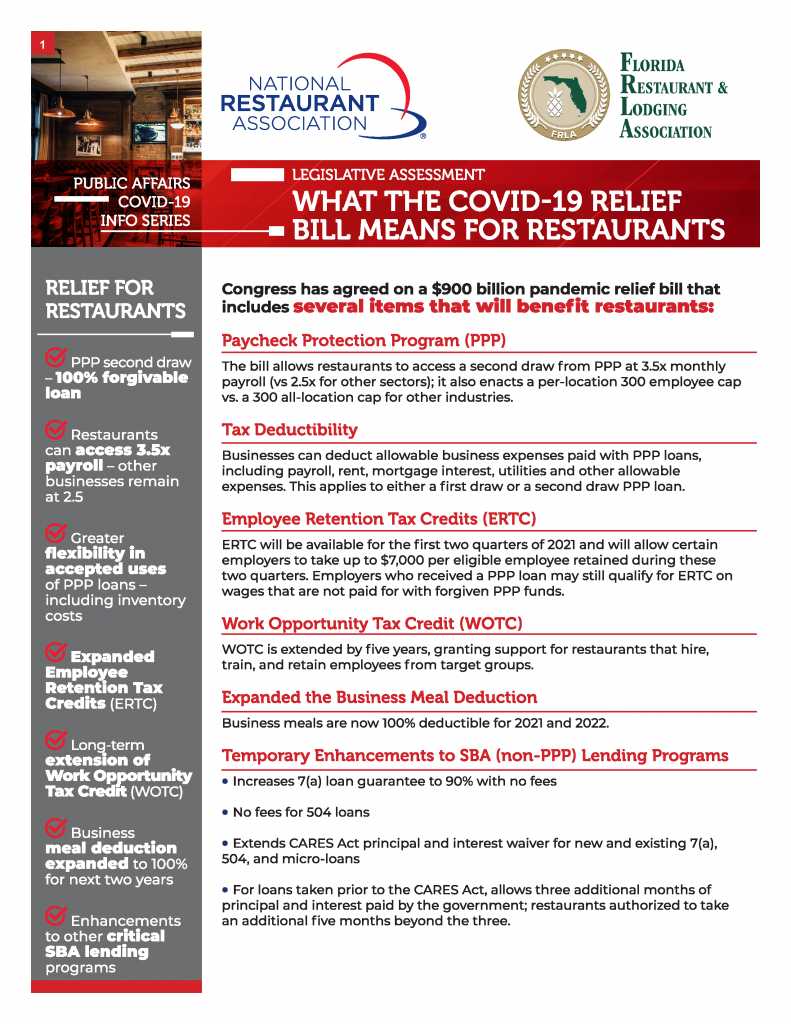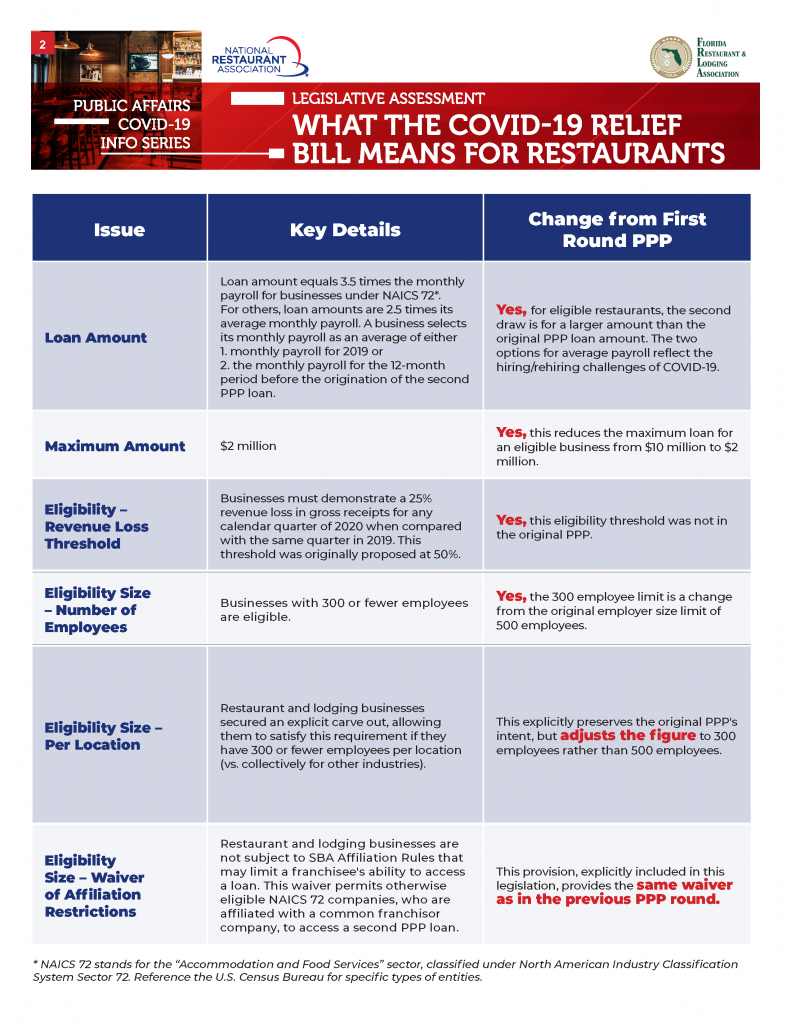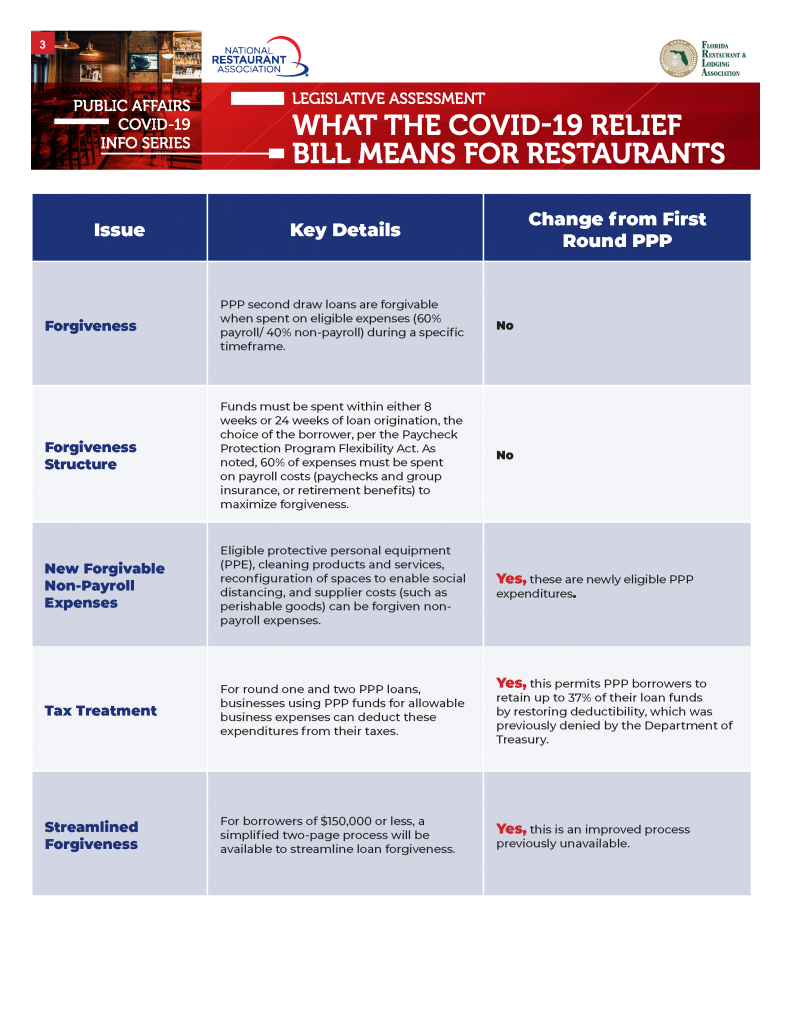Industry Association and Licensing Leader Partner on Copyright Education
TALLAHASSEE, Fla. and LOS ANGELES, Jan. 26, 2021 /PRNewswire/ — The Florida Restaurant & Lodging Association (FRLA) and MPLC today jointly announced that they have entered into a strategic partnership to educate association member restaurants and hotels about the benefits of an audiovisual strategy and the importance of audiovisual copyright compliance.
The partnership establishes a framework by which MPLC and FRLA will work together to teach members strategies for using movies and TV to increase business, and also to advise members of the risks of failing to comply with copyright laws. Ideas and information will be shared via an MPLC educational strategy that will include direct marketing and online outreach. In addition, MPLC has committed to providing a special member rate on its Umbrella License® for association members.
“As Florida’s premier hospitality trade association, it is our pleasure to assist our members in compliance with rules and regulations across every aspect of their business as they work to create memorable entertainment and experiences for their guests,” said Carol Dover, President & CEO of the FRLA. “We look forward to partnering with MPLC to provide yet another service that helps our members to operate their businesses efficiently, legally, and profitably.”
Since its founding in 1986, MPLC has taken an educational approach to the licensing of movies, TV and other audiovisual content, forging partnerships with industry associations in a variety of verticals to educate businesses about copyright compliance.
“We are excited to be working with the Florida Restaurant & Lodging Association,” said Dave Davis, President of the Americas at MPLC. “FRLA is again demonstrating their commitment to ensuring the success of Florida’s hospitality and restaurant industries by helping their members find creative ways to bring the magic of movies and TV to their establishments in a cost-effective way, while being compliant with US copyright law.”
According to the US Copyright Act, Title 17 of the United States Code, copyrighted movies, television, and other audiovisual content that is legally available for personal, private use (such as via, broadcast, cable or satellite television, DVDs, downloads, or streaming services) require a public performance license when exhibited in public. Showing audiovisual content in restaurants and bars requires a public performance license.
About the Florida Restaurant & Lodging Association: The Florida Restaurant and Lodging Association (FRLA) is Florida’s premier non-profit hospitality industry trade association. Founded in 1946 as the Florida Restaurant Association, FRLA merged with the Florida Hotel and Motel Association in 2006. FRLA’s more than 10,000 members include independent hoteliers and restaurateurs, household name franchises, theme parks and suppliers. The association’s mission is to protect, educate and promote Florida’s $111.7 billion hospitality industry which represents 1.5 million employees. Dedicated to safeguarding the needs of the membership, FRLA provides legislative advocacy to ensure the voices of its members are heard and their interests are protected. The association offers regulatory compliance and food safety training through SafeStaff® and FRLA’s subsidiary, RCS Training. The FRLA Educational Foundation provides industry-developed, career-building high school programs throughout the state.
About MPLC: MPLC is the global leader in public exhibition licensing, supporting legal access to movies, TV, and other audiovisual content in more than 40 countries. Through its Umbrella License®, a blanket license for public exhibition, MPLC represents a variety of rights holders, ranging from Hollywood studios to independent producers. MPLC licensees include government, corporations, and non-profit organizations. Hundreds of thousands of locations around the world publicly exhibit content legally with the Umbrella License. In January 2020, MPLC joined forces with Tenzing Private Equity Capital to drive growth opportunities and fuel its charge to become the most professional non-theatrical licensing company in the world.





